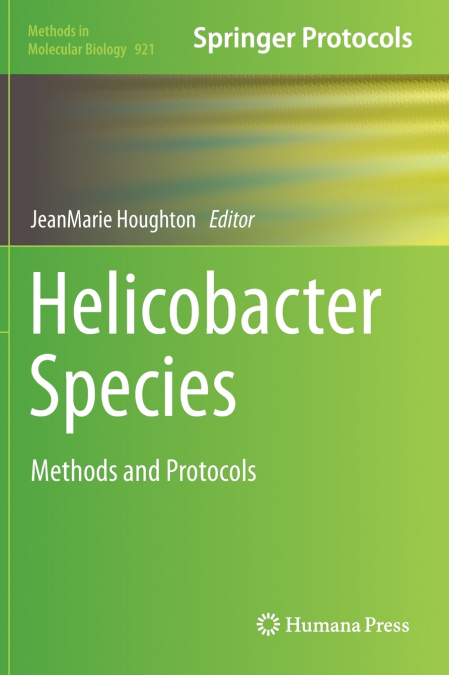
Jeanmarie Houghton
Identifying Helicobacter infection as the leading cause of peptic ulcer disease and gastric cancer has dramatically altered the treatment of these disease states. Over the last several decades, scientists have come to understand that the interplay between the bacteria, the host, and the environment all contribute to the clinical outcome of infection. In Helicobacter Species: Methods and Protocols, expert researchers in the field detail many of the methods and which are now commonly used to study Helicobacter infection. These include protocols and methods that have evolved over time, and standards across the field have been established which are essential for optimal outcomes and to allow comparison of data across different laboratories. Written in the highly successful Methods in Molecular Biology™ series format, chapters include introductions to their respective topics, lists of the necessary materials and reagents, step-by-step, readily reproducible laboratory protocols, and key tips on troubleshooting and avoiding known pitfalls. Authoritative and practical, Helicobacter Species: Methods and Protocols seeks to aid scientists in further study of this crucially important research into Helicobacter research.